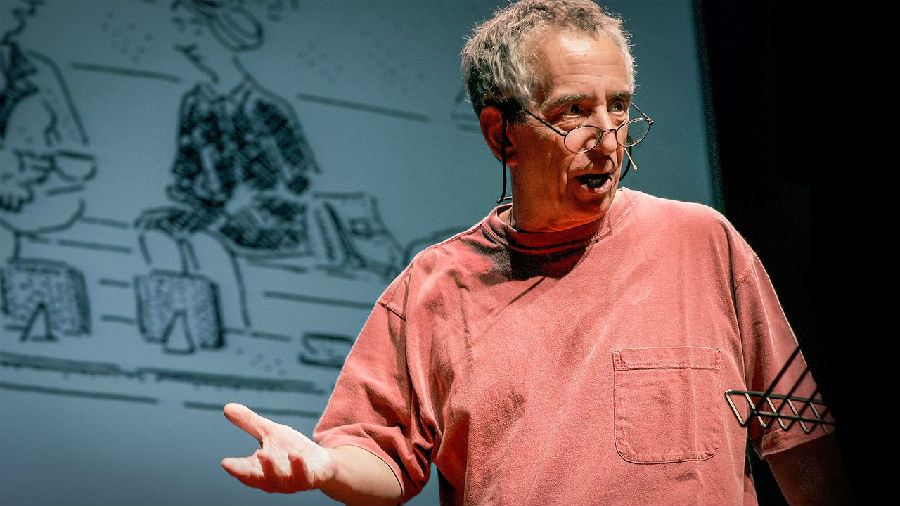I'm going to talk to you about some stuff that's in this book of mine that I hope will resonate with other things you've already heard,
我想在這里談談我這本書里的部分內容,希望它和你們已經聽到過的一些事物引起共鳴,
and I'll try to make some connections myself, in case you missed them.
如果有哪些你們不清楚的,我在這里會試著幫你把它們聯系起來。
But I want to start with what I call the "official dogma."
我想從一個公認的信條講起。
The official dogma of what? The official dogma of all Western industrial societies.
什么樣的公認的信條呢?就是整個西方工業社會所篤信不疑的一個信條。
And the official dogma runs like this: if we are interested in maximizing the welfare of our citizens,
這個信條是這么說的:如果我們要想使民眾獲得最大限度的福利,
the way to do that is to maximize individual freedom.
其方法就是使個人自由達到最大化。
The reason for this is both that freedom is in and of itself good, valuable, worthwhile, essential to being human.
原因就是自由這東西在與本身就是美好的,具有價值,為人們所必需。

And because if people have freedom, then each of us can act on our own to do the things that will maximize our welfare,
另外,一旦人們有了自由,我們每個人都可以自己做主,用各種辦法最大限度地獲得福利,
and no one has to decide on our behalf. The way to maximize freedom is to maximize choice.
用不著別人來替我們做主。使自由達到極大化的途徑就是最大限度的增加選擇性。
The more choice people have, the more freedom they have, and the more freedom they have, the more welfare they have.
人們的選擇越多,自由也就越多,自由越多,得到的福利也就越多。
This, I think, is so deeply embedded in the water supply that it wouldn't occur to anyone to question it.
我覺得,這個觀念就像摻進了我們的自來水里那樣根深蒂固,以至于沒人想起來會對它提出疑問。
And it's also deeply embedded in our lives.
同樣這個觀念也深嵌于我們的日常生活之中。
I'll give you some examples of what modern progress has made possible for us.
我來給你們舉些例子,看看當代社會的進步發展讓我們變得有可能做些什么事。












